The guardian of Azerbaijan’s oil riches
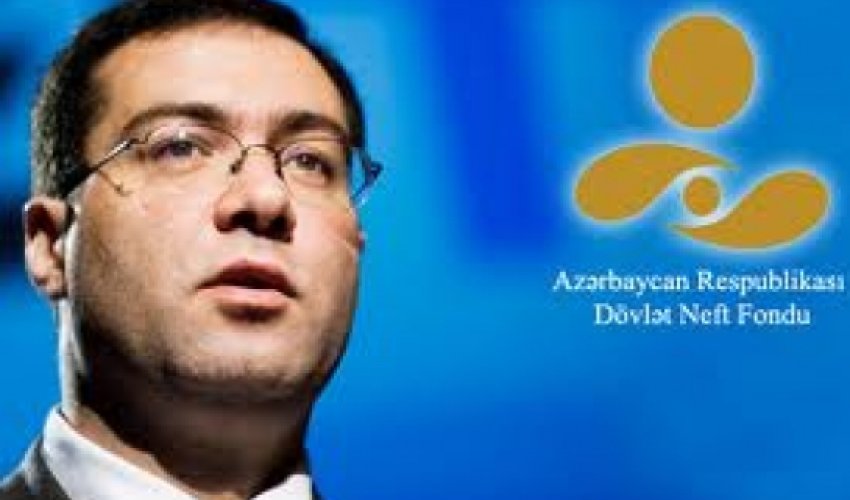
(The National) - Shahmar Movsumov has an interesting challenge. He has been entrusted with a very large amount of money, told to spend some of it wisely but to keep a sizeable proportion for the future. And he has also been told to publicly account for every cent.
Mr Movsumov is the chief executive of the State Oil Fund of the Republic of Azerbaijan (Sofaz), the sovereign wealth fund (SWF) of the comparatively small but energy-rich Caspian country, and his main job is to keep the balance between expenditure and management of the surplus reserves built up over the years.
Since the cash began to flow 15 years ago, Sofaz has received some US$110 billion worth of energy revenue and spent most of it. “Invested in future generations,” Mr Movsumov says.
But nearly $40bn is still in the bank.
How it is spent is closely scrutinised. “If you are asking me: ‘is the government of Azerbaijan reporting every dollar, every barrel of oil and every cubic metre of gas that comes out of the Caspian?’, the answer is yes. And we tell the world, too,” he says.
SWFs have not always had this attitude. As organisations, they have a chequered history. Before the global financial crisis, western institutions were worried about them, seeing sinister political motives behind their investments in big banks or corporates in the United States and Europe.
Partly because of the crisis and partly because the SWFs took steps to put their own house in order under the Santiago principles – a schedule of transparency and governance measures hammered out in the Chilean capital – the West seems less bothered about the issue these days. Or maybe just more willing to take capital investment, wherever it comes from.
Sofaz, under Mr Movsumov since 2006, appears to have taken the Santiago principles to heart, especially when it comes to transparency.
“Transparency has always been high up our list of business technologies. The stakeholder is not just one person, but the population of the whole country, and we are responsible to them. So we have a duty to publish everything we can,” he says.
“We publish quarterly press statements of our financial affairs, and we have an international audit every year by one of the big accounting firms.”
Sofaz was also one of the founding members of the Extractive Industries Transparency Initiatives, a standards body first suggested by the former British prime minister Tony Blair, who also plays a significant role in other ways in Azerbaijan’s energy industry.
Mr Movsumov has something of the young Mr Blair about him. In his early 40s, he has an enthusiasm for his job and a view on international events.
He is part of the younger, technocratic generation brought through by the Azerbaijan president, Ilham Aliyev, to present a more modern face to the world.
Like the president, he is from the Azerbaijan exclave of Nakhchivan, which has provided many of the country’s ruling elite, and he attended the Moscow State Institute of International Relations. But he rounded off his career with a master’s degree at the Kennedy School of Government at Harvard University.
He is a safe pair of hands in the high-profile job, but is gradually bringing in some new and different techniques to the way Sofaz is run.
The main aim has always been to spend Azerbaijan’s energy legacy for the benefit of the country, and over the years this has primarily meant investment in infrastructure and essential utilities.
Since 1999, when the fund started receiving energy revenue, about $70bn has been spent on projects to modernise the dilapidated post-Soviet economy.
“Most has gone on strategic economic development. Before, we used to buy electricity from Russia, now we export it to Russia, Iran and Georgia. It used to be only Baku [the capital city] area that had access to gas – now it’s 83 per cent of the country. The same applies to water supply, the sewage and roads networks,” Mr Movsumov says.
He is happy to confirm estimates by the Sovereign Wealth Fund Institute, an industry think tank, that Sofaz has about $38bn in reserves, which by its rules has to be invested outside the country.
At first, the Sofaz portfolio was cautious, mainly invested in fixed-interest government bonds. This worked in the fund’s favour during the crisis, when some SWFs lost big amounts on investments in esoteric financial instruments. “We made $300 million in 2008 because we’d been so cautious before,” he says.
Since 2012, however, Mr Movsumov has begun to gradually diversify the portfolio. The majority is still in fixed interest, but he has branched out into public and private equity (10 per cent of total investment) and into gold and property, at 5 per cent each. “It’s the first time in our history we’ve had reserves in gold, which I regard as having an intrinsic value to some extent outside the actions of governments,” he says.
In terms of currencies, the strategy is still focused on the traditional grouping of dollar, euro, sterling and a few others, but Sofaz is in talks with the Chinese authorities to be allowed to put some of its assets in yuan, maybe as much as $1.8bn.
“We are awaiting the results of an application to the Chinese authorities, who are very protective and we have to have their permission. But I am optimistic we’ll get some good news soon.”
Relations with Arabian Gulf SWFs, which are some of the biggest in the world, are very cordial, he says. “Azerbaijan has always enjoyed good commercial relations with the UAE. The Gulf is a very interesting place, and similar to us. It is flush with money and it understands infrastructure. If there was an opportunity to do more there, especially in Abu Dhabi, we’d certainly pursue it.”
Bakudaily.Az
























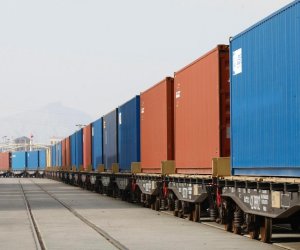
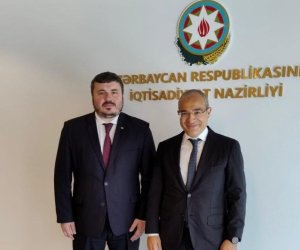

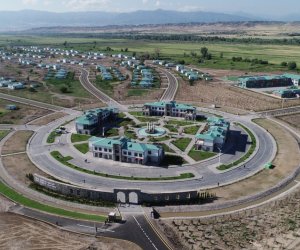
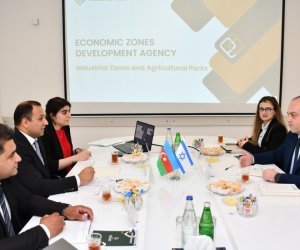
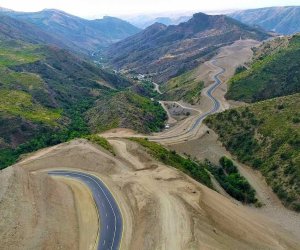
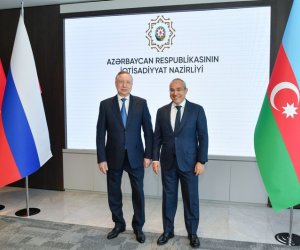
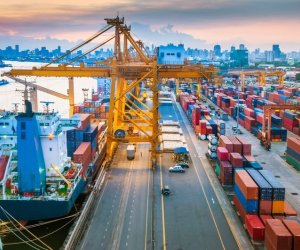
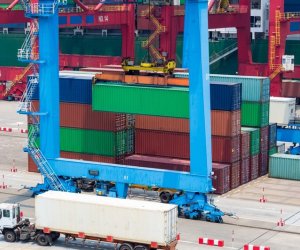



 Photo
Photo 



 Video
Video 

